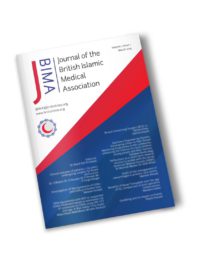
Assalamo Alaikom
Leadership is crucial to the effectiveness and success of any organisation. Accountability starts at the top, and executives must be making the right decisions; as well as reflecting the diversity of the workforce. And whilst over 40% of the NHS medical staff come from BAME backgrounds, the number of BAME senior leaders is nowhere near this. The NHS has developed its so called long term plan for the 21st century to address this, but this is an issue that needs to be tackled immediately.
There are huge challenges facing BAME medical staff; racism is present and whilst there is often a lot of rhetoric celebrating diversity, this doesn’t go very far. Genuine efforts to break down barriers for BAME healthcare professionals are short lived, and equality seems to be the order of the day, not equity. It is the latter of course which is so crucial, and helps create the level playing field an already disadvantaged group needs to move forward. Deep seated cultural norms mean that efforts may be misdirected and even when the attempts to create pathways are authentic, they rarely succeed.
As we start to re-build our landscape in what is slowly becoming a post-Covid world, the light is shining even more brightly on these unfair realities. BAME healthcare staff were vastly overrepresented in the number of Covid deaths over the past 2 years. But little seem to has changed. One thing is clear; any change for the better will go beyond a simple top-down directive. Change must be institutional and organisation-wide. It must be coherent. And crucially, it must also be established in Medical Schools across the UK. These are the incubators of our future doctors and students must be empowered to seek and create change themselves. There are brilliant examples of Muslim Medical Societies working within their Student Unions to enact change and offer Muslim students (who overwhelmingly tend to be BAME) spaces to advocate for their needs.
We at BIMA would like to support a leadership program for our medical, dental and pharmaceutical students and also for our junior trainees. The aim of this program is to focus on developing tailored practical skills within high value health care projects, tuition by leading clinicians and experts, bespoke mentoring by BAME role model health care leaders and clinicians and opportunities for national networking. We hope that this will empower our young Muslim students and trainees and, in time, we’d like to be able to support the development of an academic master’s level program – in the shape of an intercalated year – focusing on this. This would include elements of Islamic values and ethics tied in with management theory and leadership.
A significant number of our volunteers are junior doctors and other healthcare professionals and we do well in recruiting the youth, but we must do better, and we must have relationships with Muslim Medical Societies at the university level too.
Our youth are our priority. Not just for BIMA, but for the future of our NHS. We will do all we can to empower you.
Very best wishes,
Wassalam.
Dr Sharif Kaf Al-Ghazal
JBIMA, Editor in Chief

